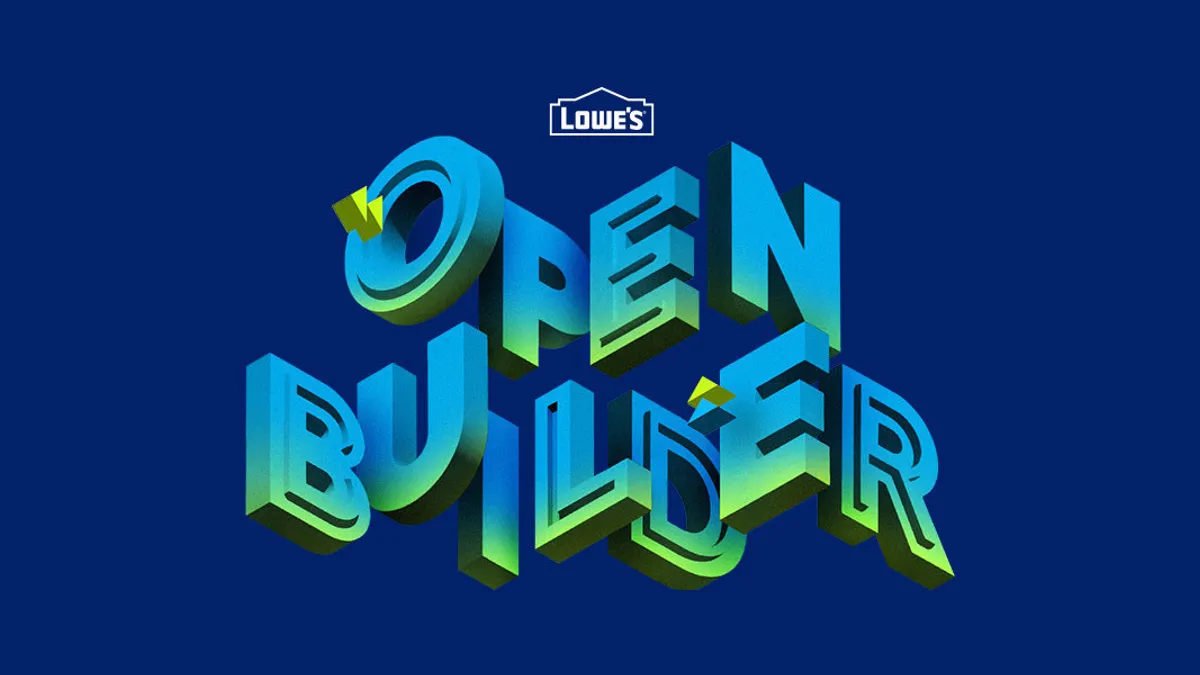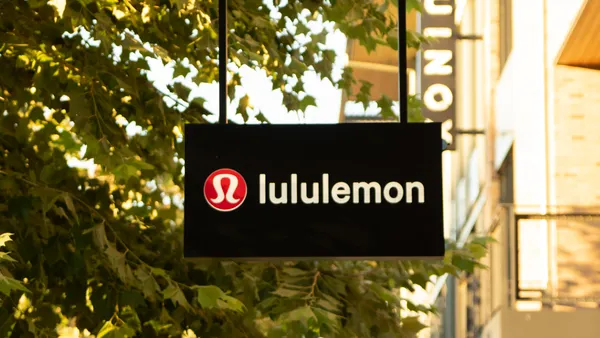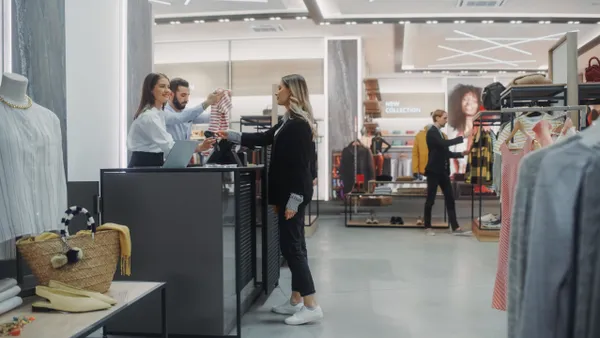Dive Brief:
- To help builders virtually visualize spaces, Lowe’s on Tuesday announced it is creating more than 500 free 3D digital assets for customers to download and use in Lowe’s Open Builder, the retailer’s new metaverse hub that is available to all online creators. The company is also releasing a new limited-edition, wearable NFT collection for Decentraland users.
- The retailer said that the assets, which range from lighting and patio furniture to kitchen and bath accessories, can be used to build virtual homes or make other goods and experiences within digital communities, according to a company press release.
- The retailer will offer its wearable NFTs to the first 1,000 consumers until July 20, with a limit of one NFT per person, per the press release.
Dive Insight:
Lowe’s decision to enter the amorphous metaverse comes as the demand for home improvement goods stabilizes from the COVID-19 pandemic heights. Lowe’s saw a 5% bump in net sales in Q4 2021, joining its rival Home Depot in sustaining pandemic peak sales growth. However, Lowe’s reported a 3% decline in Q1 2022 total sales, suggesting that the pandemic sales boom is slowing.
Lowe’s views its entry into the metaverse as part of its digital innovation efforts. In November, the retailer debuted its Measure Your Space tool, enabling shoppers to measure and organize their spaces via its mobile app.
Lowe’s stands alongside a lengthy list of brands, including Lego, Under Armour, Acura, Jose Cuervo, Tommy Hilfiger and DKNY, that have collaborated with Decentraland in recent months. A recent McKinsey & Company survey found that 95% of business owners said the metaverse could positively impact their industry over the next five to 10 years, and 61% anticipate the metaverse to change how their field operates. McKinsey also estimates that the metaverse could generate up between $2 trillion to $2.6 trillion in e-commerce value by 2030.
“Over the past several years, we have infused new technologies into the planning and shopping experience and know our customers have benefited greatly from being able to explore and test home improvement projects in the virtual world before taking the leap to implementation in their real-world homes or job sites,” Seemantini Godbole, chief information officer of Lowe’s, said in a statement. “By entering the metaverse now, we can explore new opportunities to serve, enable and inspire our customers in a way no other home improvement retailer today is doing.”
As Lowe’s and other retailers dive head first into the metaverse concept, research suggests that consumer sentiment toward the metaverse is murky. A Piper Sandler survey from April found that less than half of Gen Z respondents said they weren’t sure about the metaverse or weren’t interested in it. And a survey from Vice Media Group and Publicis Groupe’s Razorfish agency found that more than half of Gen Z gamers want to earn money in the metaverse, and a third want to build their careers there.
Additionally, a Wunderman Thompson Intelligence survey found that while nearly three-quarters of respondents were aware of the metaverse, only 15% said they could explain it to others. But a McKinsey survey released earlier this month found that about 64% of respondents said they were excited or very excited about shopping in the metaverse.
But as more consumers and brands become curious about the metaverse, safety concerns remain. The Wunderman Thompson Intelligence survey noted that two-thirds of parents were concerned about their children’s safety in the metaverse. Meanwhile, brands must consider whether metaverse communities could be plagued with hate speech.
It’s also unclear whether Decentraland will be able to hold on to its user base. CoinDesk reported last month that the platform is pursuing sports to keep users on the platform, but it only had 1,200 active players at that time.














